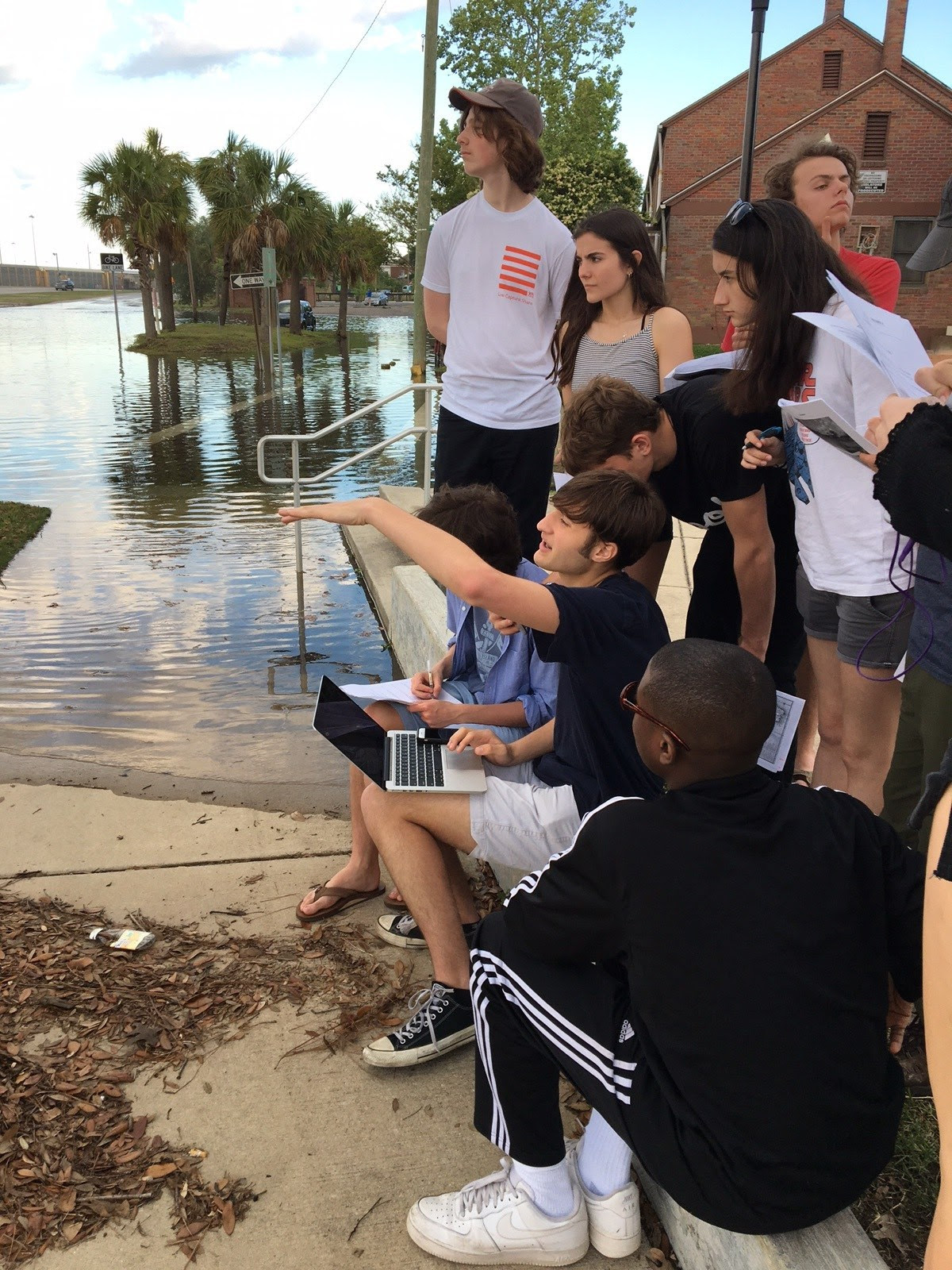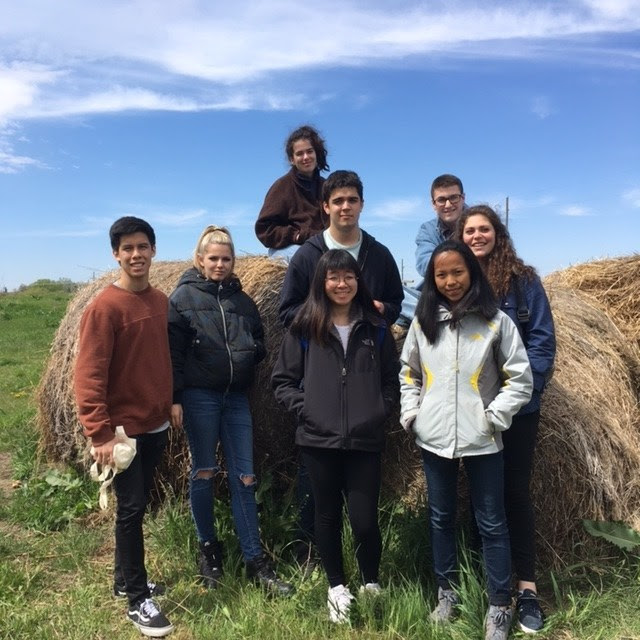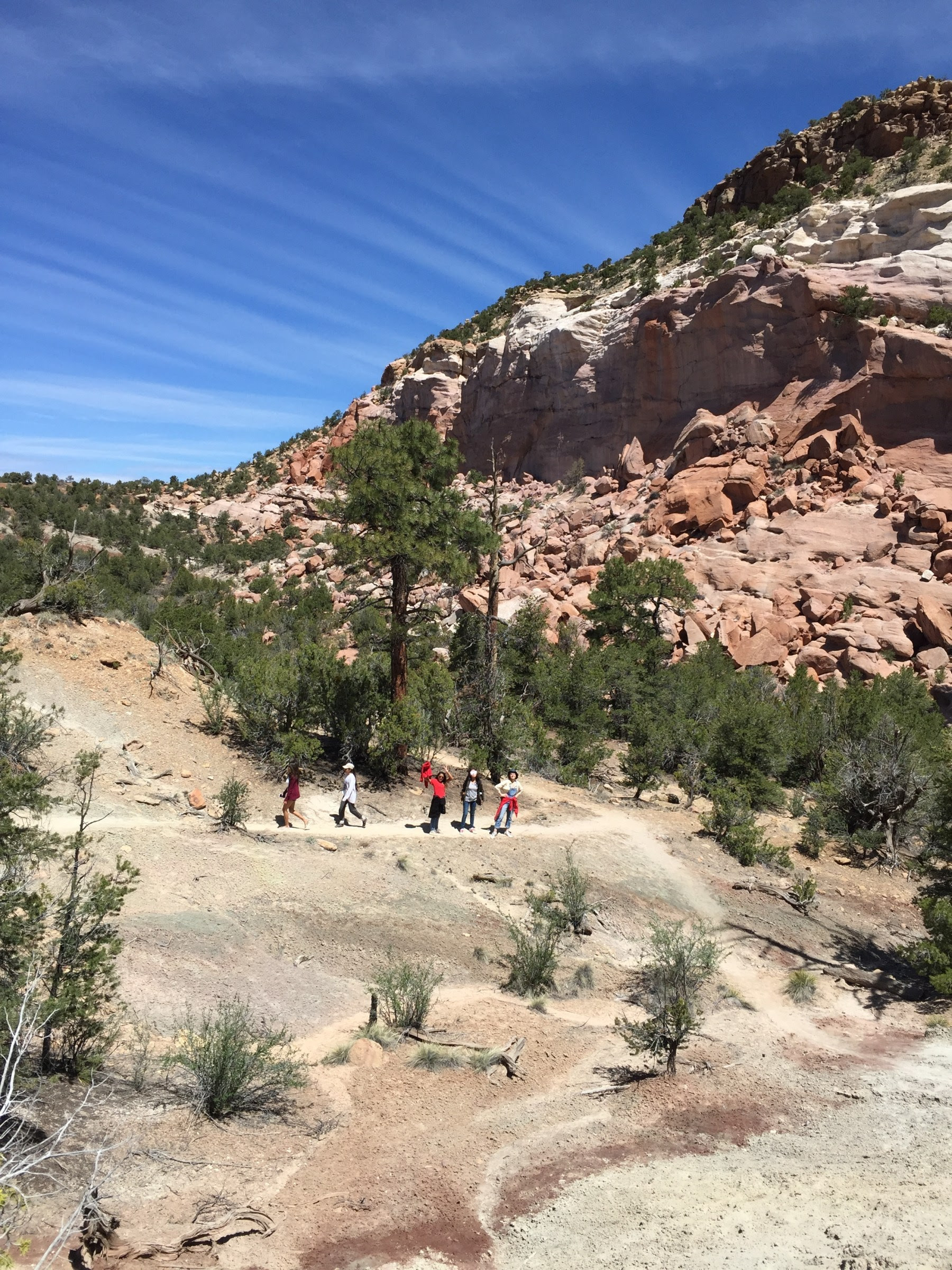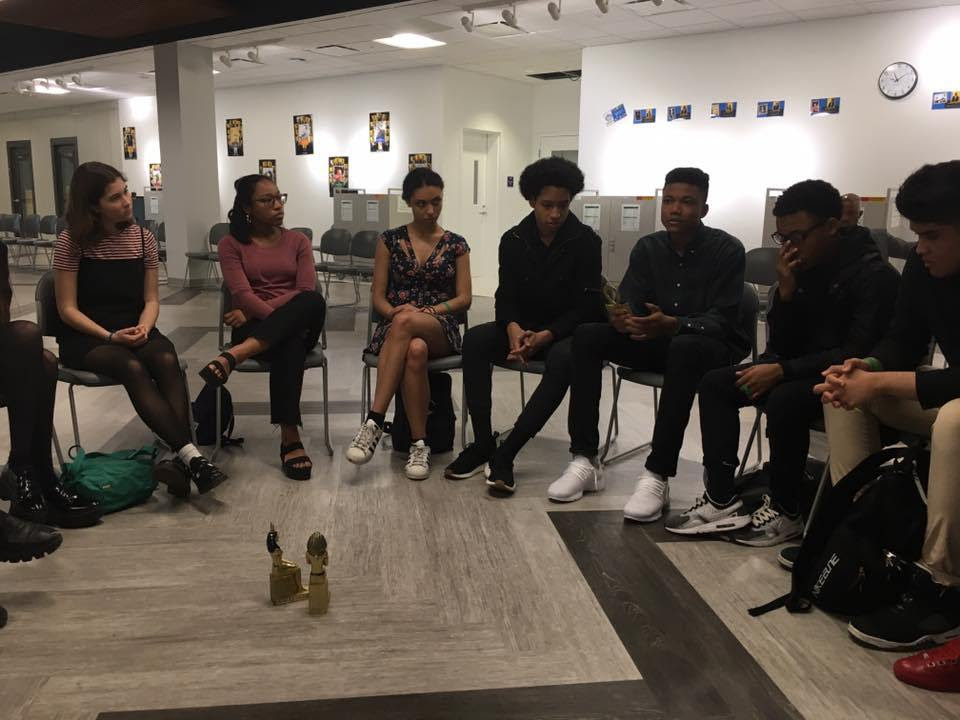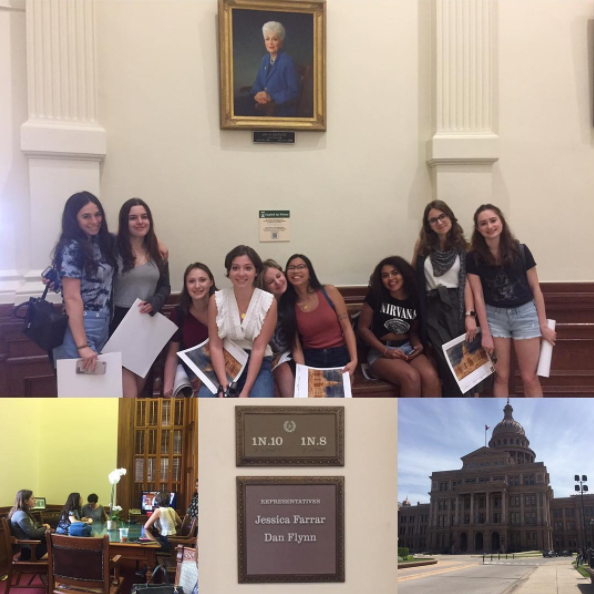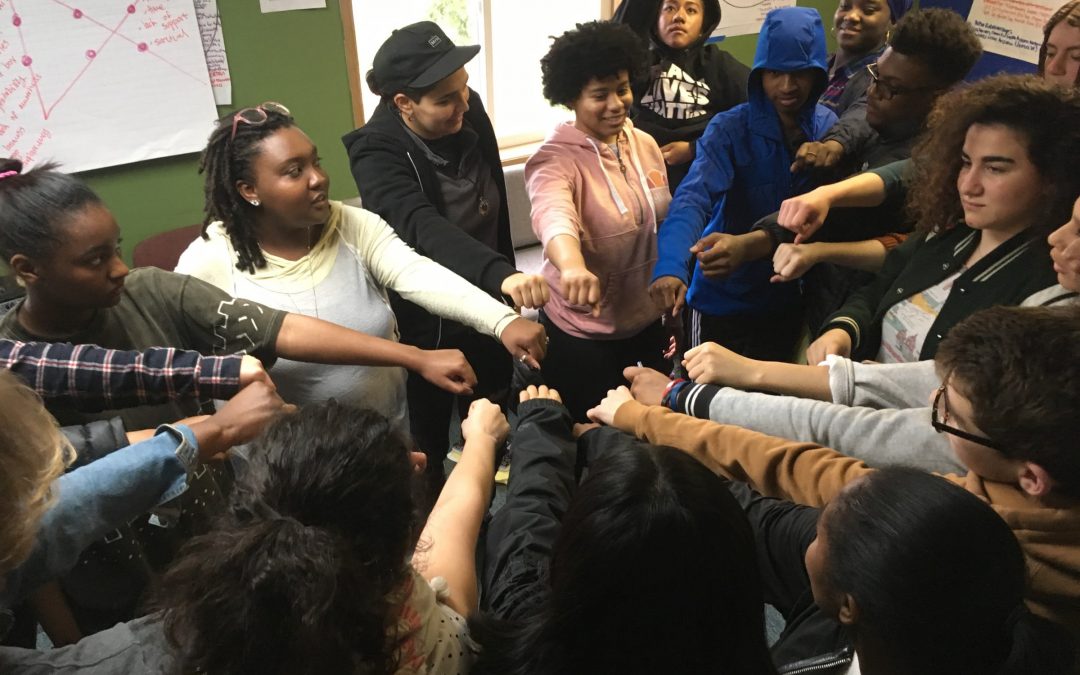On Monday, as students returned to school after a powerful, immersive, and intense week away on their junior class trips, the juniors gathered in the PAC to begin the work of processing the experiences they had on their trips and what those experiences would mean for them moving forward. Students arrived that morning energized and exhausted by the experiences they had over the week—exhausted by the intensity and focus of their week-long inquiries, and energized by the prospect of building on the momentum of that work back here at home.
They had spent the previous week engaged in six different place-based research experiences that had sprung from their own interests, passions, and curiosities: in Charleston, S.C., studying sea level rise and its effect on coastal communities; in Washington, D.C., and Baltimore, looking at the ways that public, charter, and private schools are organizing against injustice in the education system; in Navajo Nation, examining the environmental effects on Native American communities of decades of exploitative resource extraction and water contamination; in Omaha, Neb., learning about our food systems and the environmental impact of agricultural practices; in Seattle, studying the city’s police reform efforts and the relationship between law enforcement and communities of color; and in Austin, learning about policy formation and the ways that legislative policy governing sexual health affects the citizens of Texas.
Students described powerful moments from their trips that had affected them—moments that challenged their assumptions, complicated their worldviews, and ignited their desire to act. From witnessing firsthand the way some of our nation’s public schools have become occupied by police and military presence (Baltimore) to touring the grounds of a now-shuttered uranium mine that had polluted and sickened the surrounding community (Navajo Nation); from debating with a pro-life student group at the University of Texas (Austin) to witnessing firsthand the de-escalation and use of force training undergone by police officers (Seattle); from watching flood waters rise rapidly in Charleston neighborhoods as high tide swept into touring an industrial cattle operation and marveling at its sheer scale—students described experiences and learning that would never have been possible within the walls of a classroom.
Dalton, who traveled to Navajo Nation, summed this up for the group. “You can read as many articles as you want,” he said to his classmates that first morning back, “but there are some things you can never really understand until you go there and see them for yourself.”
This notion—that engaging directly with the world imparts a kind of knowledge that is both intellectual and emotional, both visceral and concrete, and that is lasting in its impact—is one of the driving forces of this trip. By engaging with these issues alongside the individuals who are actually grappling with them on the ground and driving change in their communities, students begin to see the shape and complexity of the issues in a fuller sense.
On our last night in Seattle, as we shared our final meal together and unpacked the experiences we had had throughout the week, Gisell remarked to our group, “I feel like we’re getting to see this issue from every different perspective and through a bunch of different lenses, and it’s way more complicated than I thought.”
It is precisely this appreciation of the nuance and complexity of these issues—the relationships between the various stakeholders, systems, and institutions that impede change or make it possible—that we hope will position students to become advocates for change in their own communities once they return.
